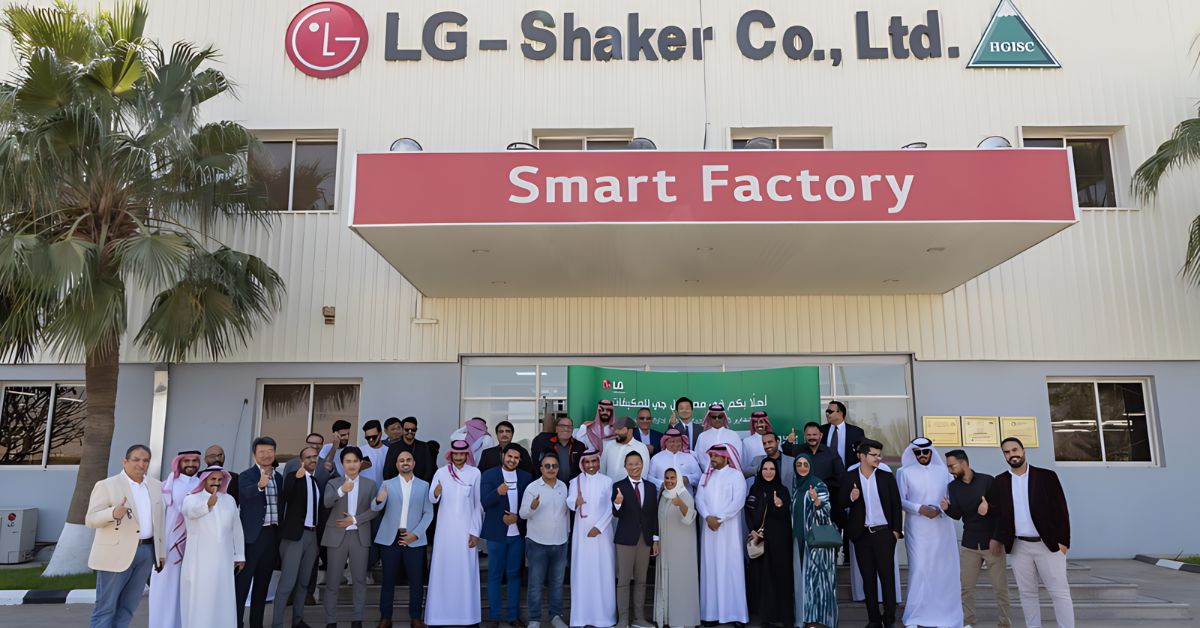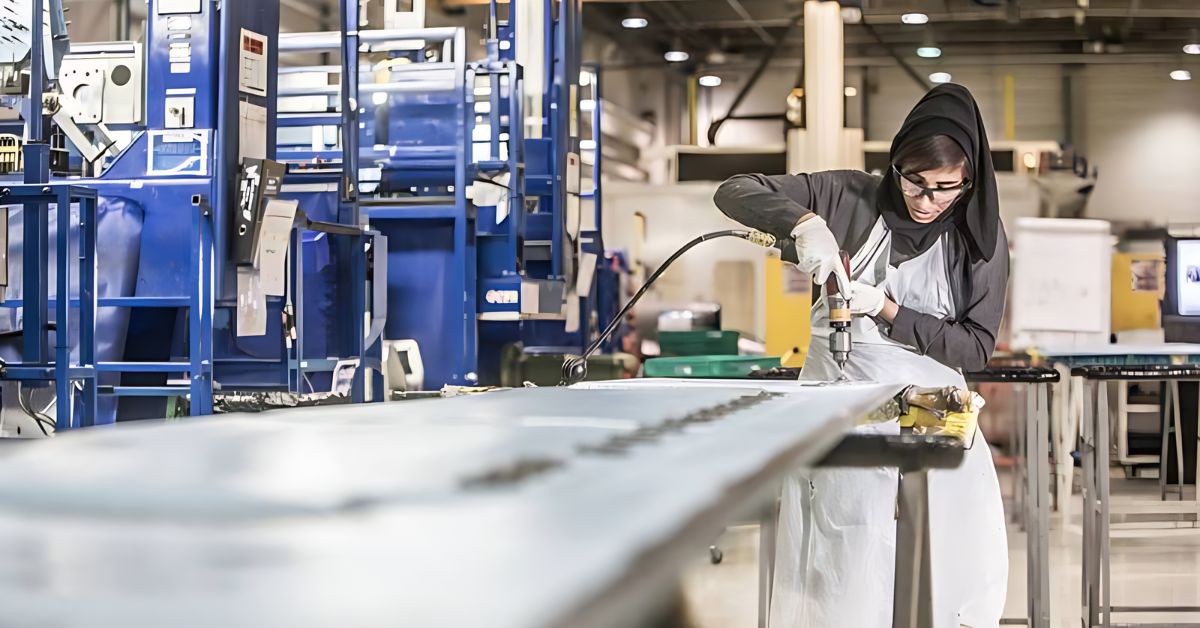DUBAI, UAE — The Gulf’s commitment to adopting the latest industrial technologies aligns with global advancements, aiming for precision, skill, safety, and cost-effectiveness. This commitment is evident in the smart transformation of Gulf factories.
Saudi Arabia and the UAE lead the Gulf in this domain, with Bahrain recently joining the ranks. The Bahraini Ministry of Industry and Trade has launched the Smart Factories initiative. According to the Bahrain News Agency (BNA), Minister of Industry and Trade Abdullah Fakhro stated the initiative’s goal is to transform 300 Bahraini factories into “smart factories” by 2026.
Fakhro noted that factories keen on joining the program must undergo an initial evaluation to devise a plan that enhances their readiness for the Fourth Industrial Revolution. These factories will employ the “Siri” indicator, a metric used by neighboring countries, to gauge their preparedness. Based on evaluations, factories will receive support from the Labor Fund “Tamkeen”, covering 50 percent of the operational capital expenditures for the transformation. This support also extends to financing, training, and qualification programs.
The minister emphasized that the transformation will adopt the best regional and global practices in managing production lines to ensure resource sustainability, heightened productivity, and efficiency.
Khaled Al-Bayat, Executive Director of the Labor Fund’s Business Development Department, highlighted that automating processes in local factories is anticipated to create high-quality job opportunities in the industrial sector.
The Gulf Smart Factory Transformation * Gulf countries prioritize the adoption of the latest industrial technologies. * Saudi Arabia, UAE, and now Bahrain are leading the Gulf in smart factory transformations. * Bahrain aims to transform 300 factories into "smart factories" by 2026. * Factories to undergo evaluations for readiness for the Fourth Industrial Revolution. * Smart manufacturing defined as addressing challenges through open infrastructure. * Saudi Arabia's "Factories of the Future" program to transform over 4,000 factories. * UAE's Ducab Group launches innovative plant emphasizing AI and digital connectivity. * Fourth Industrial Revolution seen as reshaping geopolitical landscapes.
The Smart Manufacturing Leaders Consortium (SMLC) defines smart manufacturing as the capability to address present and future challenges through an open infrastructure, enabling rapid solution implementation and creating differentiated value. This approach has become a global focus, with smart factories enhancing traditional manufacturing through rapid technological advancements driving the new industrial revolution.
The Massachusetts Institute of Technology Vocational Education in the United States describes this revolution as being rooted in “cyber-physical production systems”, which challenge conventional manufacturing processes, making them more dynamic.
Smart manufacturing hinges on the convergence of modern data science and artificial intelligence technologies.
Future factories
Saudi Arabia, witnessing a surge in industrial localization, is firmly committed to transitioning to smart manufacturing. In December 2022, the Ministry of Industry and Mineral Resources, the Saudi Authority for Industrial Cities and Technology Zones (MODON), and NEOM Industrial City “Oxagon” collaborated on the “Factories of the Future” program. This program aims to assess national factories’ operational readiness using the “Smart Industry Readiness Index” (SIRI) and transform over 4,000 factories into advanced entities through automation and efficiency enhancements.

The UAE, a regional frontrunner in leveraging artificial intelligence, seeks to be among the top nations adopting smart factories. Last June, the Ducab Group, a prominent UAE energy solutions provider, unveiled its innovative plant, the Blade. This factory emphasizes digital connectivity, artificial intelligence, data analytics, and intelligent supply chain management. It offers specialized solutions that enhance product quality and reliability, propelling the growth of the UAE’s industrial sector.
Embracing advanced technology and artificial intelligence amplifies productivity, curtails emissions, and fortifies the knowledge-based economy. Moreover, hastening digital transformation bolsters industrial sector competitiveness, corporate expansion, and industrial sustainability.
Abdullah bin Sadiq Dahlan, Chairman of the Board of Trustees at Jeddah University of Science and Technology, opined that the Fourth Industrial Revolution and its accompanying digital shifts are reshaping nations’ geopolitical landscapes. In an article on the “Opinions on the Gulf” website, he emphasized that nations embracing emerging technologies gain a competitive edge, while those lagging risk being left behind.
Dahlan believes the Fourth Industrial Revolution requires Gulf countries to adopt innovative tools and mechanisms to propel various sectors at economic and social levels.
The Gulf’s swift shift to smart industry underscores the myriad benefits of this transformation, as validated by expert opinions and specialized reports.
According to the Infiniti Research website, the significance of smart factories manifests in several ways, including enhanced quality, reduced operating costs, heightened customer satisfaction, improved productivity, elevated employee satisfaction, and energy efficiency.

